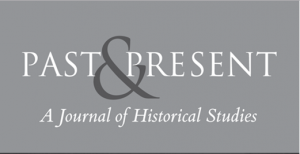by Esther Lewis (University of Nottingham)
At the end of June, a one day conference was held at the Institute of Historical Research which aimed to bring together researchers using the relatively new methodology of Social Network Analysis (SNA) in historical studies. SNA allows the researcher to investigate social structures through the use of networks and graphs and is proving to be a useful tool for social and economic historians. Its use for history is relatively new, but it has been widely used in other humanities and social sciences. The day was organised by two PhD students, Charlie Berry and Esther Lewis, who both felt there was a need for a discussion space regarding SNA within History. Therefore, the day aimed to provide a platform for discussion of the challenges posed by the methodology for historians.
There were three panels. The first discussed women and marginal groups. Claire Richardson discussed nineteenth-century prostitutes’ networks in Stamford and Peterborough. Jonathan Blaney and Philip Carter presented preliminary findings on friendship networks between female undergraduates at Royal Holloway in the early twentieth century. Agata Bloch demonstrated that groups who have been traditionally seen as ‘marginal’ within the Portuguese empire had a voice within the wider network of the empire. Martin van Dijck considered local networks in port towns and women’s place within these. The questions raised methodological queries for each speaker, as well as interest in their sources and their adaptation to the software. Particularly, Bloch raised the important point that it is difficult for the network software to understand the Portuguese language.
The second panel focused on the use of pre-modern sources in SNA. Leanna Brinkley discussed the maritime community of coastal traders in Hull, Bristol and Southampton using court books. Rachael Harkes discussed the relationship between the membership of the Ludlow Palmer’s Guild and the town of Ludlow. Joe Chick offered a reflection on the methodology through the lens of his research into the monastic town of Reading. The three papers complimented each other well and raised two interesting points of discussion. First, the networks that come out of pre-modern sources are often set within a vertical hierarchy created by the type of source, but SNA and source relation allows us to analysis some of the horizontal networks between different groups. Second, the panel was comprised of PhD students and it emerged that they are teaching themselves, and their supervisors, how to use this methodology and technology.
One of the most interesting (and best) things about #NegotiatingNetworks is the sense that it’s the postgrads and ECRs who are the experts, established scholars (including people’s supervisors!) listening and learning.
— Dr Sarah Irving (@sarahonline_) June 25, 2018
The third panel considered innovative methodologies using SNA. Joonas Kinnunen demonstrated how the methodology could make use of sources that have recently been made available online: notably, the Danish Sound Toll Register Online. Rui Esteves discussed logrolling for votes by MPs in the British parliament during the 1845 railway mania. Neil Rollings and Mark Trammer considered the appointment diaries of Margaret Thatcher to question how relationships develop overtime. Each speaker was using Social Network Analysis in a different way which showcased the potential of the approach to those who were new to the methodology.
The day ended with a keynote from Dr Sheryllyne Haggerty from the University of Nottingham. She offered a reflective piece of the methodology which was accessible to new comers, of which there were several in the room, and tied together a lot of the discussion of the challenges of the approach nicely. Overall, Charlie and I were pleased with the running of the conference and the lively conversations that the delegates appeared to have had. Each speaker discussed the programme they were using, and there was time for troubleshooting software in questions and over coffee. We were very grateful for the funding and support we received from the IHR, Past and Present, The Economic History Society and The Social History Society. Their generosity enabled us to hold an event that could be inclusive of a range of people at different stages in their academic careers, from Masters students to professors. It is clear that Social Network Analysis is a popular and productive methodology which should continue to grow in historical studies.

